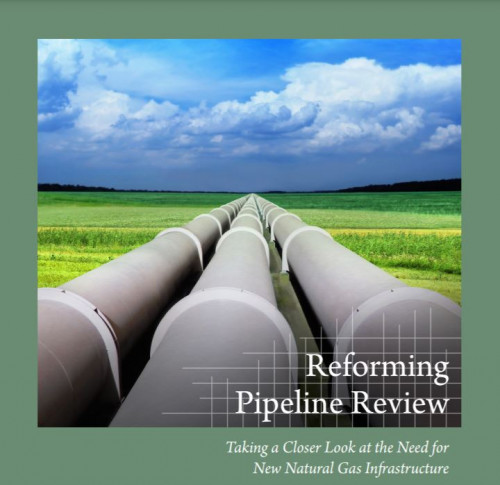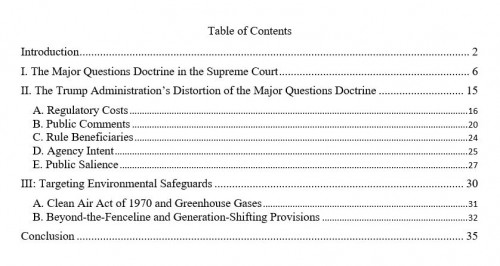-
Comments on the CPSC’s Proposed Rule for Custom Window Coverings
Policy Integrity filed comments on the Consumer Product Safety Commission's (CPSC) Proposed Rule for custom window coverings, which would require safety features to reduce the strangulation risk from window covering cords. We argue that adding a child premium to the value of statistical life (VSL) is consistent with federal guidance and international regulatory practice. However, if the CPSC chooses to apply a child premium, it should offer a theoretical justification that does not rely on life-years. We also argue that the CPSC has the authority to consider unquantified benefits and should consider avoided parental grief as a benefit of the Proposed Rule, but only to the extent it is not already captured in a child VSL premium. Furthermore, the CPSC should consider avoided litigation costs and recall costs as a quantified or unquantified benefit of the Proposed Rule and use a break-even analysis to better incorporate unquantified benefits.
-
Comments on New York PSC’s Grid Planning Process
New York's electric utilities have developed a coordinated grid planning process and an updated approach to analyzing the benefits and costs of infrastructure investments. Policy Integrity filed comments urging the Commission to recognize that compliance with the Climate Act in relation to grid planning requires, at the very least, consideration for planning decisions' impacts of global and local pollutants.
-
Comments to DOE on CP2 LNG’s Export Application
Policy Integrity filed comments on Venture Global CP2 LNG's application to the Department of Energy (DOE) for authorization to export liquefied natural gas (LNG) to non-free trade agreement nations. We argued that in line with relevant case law, DOE must consider the indirect greenhouse gas emissions associated with the CP2 LNG project in its National Environmental Policy Act (NEPA) review, and weigh the impacts in its Natural Gas Act Section 3 assessment. In doing so, DOE should apply reasonable assumptions to quantify indirect greenhouse gas emissions and better analyze substitution impacts from LNG exports. Furthermore, DOE should refrain from applying its recent NEPA categorical exclusion rule to the CP2 LNG project due to severe legal deficiencies with that rule. Finally, we urge DOE to work with FERC on a single NEPA review for the project because DOE and FERC's Section 3 authorizations are connected actions under NEPA.
-
Comments to BLM on Supplemental Environmental Impact Statement for Willow Master Development Plan
In 2020, the Bureau of Land Management approved an extraction plan known as the Willow Master Development Plan, which would authorize oil giant ConocoPhillips to drill in Alaska’s North Slope for 30 years. But a federal court blocked the Plan from going into effect, concluding that BLM’s analysis was deficient and failed to account for several important environmental considerations. With BLM now reopening its environmental review, we submitted comments calling on the agency to bolster its assessment of the Plan’s greenhouse gas emissions and economic need. Our comments, jointly filed with six other environmental groups, largely echo arguments from comments that we submitted when BLM was previously reviewing this proposal in 2019.
-
Amicus Brief on New Jersey’s Zero-Emissions Credits Program
In 2018, New Jersey established a Zero-Emissions Credits (ZECs) program, which provides subsidies to the state’s nuclear power plants for reducing carbon emissions in the energy sector. Our amicus brief explains how the Social Cost of Carbon is the best available estimate for valuing harms caused by carbon dioxide emissions. We also argue that the ZECs program should account for the benefits of avoided emissions both inside and outside of New Jersey.
-
Comments to OCC on Draft Principles for Climate-Related Financial Risk Management for Large Banks
The Office of the Comptroller of the Currency (OCC) has issued Draft Principles for Climate-Related Financial Risk Management for Large Banks. Along with partner organizations, we submitted comments supporting the OCC's Draft Principles and offering potential next steps for the OCC.
-
Reforming Pipeline Review
Taking a Closer Look at the Need for New Natural Gas Infrastructure
The Federal Energy Regulatory Commission (FERC) uses a flawed process to evaluate the need for new, long-lasting gas infrastructure such as interstate pipelines, resulting in a certification process that fails to serve the public interest. As FERC begins to re-examine its approval process for new natural gas infrastructure, our report analyzes the Commission’s authority to consider a broader range of factors when deciding whether a proposed project is in the public interest. The report offers four key recommendations for reform.
-
Comments to EPA and Army Corps of Engineers on Proposed Revised Definition of “Waters of the United States”
The Environmental Protection Agency and Army Corps of Engineers recently proposed a rule to return to the pre-2015 definition of the term “waters of the United States” under the Clean Water Act. We submitted comments encouraging the agencies to more fully elucidate the benefits from the proposed regulation, as the current economic analysis understates the rule's positive environmental effects.
-
Mangling the Major Questions Doctrine
Published in Administrative Law Review
The Trump Administration construed the major questions doctrine enormously expansively and inconsistently, in ways untethered to the Court’s jurisprudence, turning it into little more than an invitation for courts to strike down regulations the Administration did not favor for policy-based reasons. Under the similarly wrongheaded and even broader arguments made by the Administration’s allies, all greenhouse gas regulations could be suspect on major question grounds. Bringing to light these argument's enormously problematic application of the doctrine is important to foreclose their successful revival in future administrations.
-
Comments on Chumash Heritage National Marine Sanctuary
Policy Integrity submitted comments to the National Oceanic and Atmospheric Administration (NOAA) on its Notice of Intent to Conduct Scoping and To Prepare a Draft Environmental Impact Statement for the Proposed Chumash Heritage National Marine Sanctuary. Our comments describe some of the potential environmental and economic benefits of marine conservation, and suggest potential ways for NOAA to ensure that its environmental impact statement fully evaluates these effects.









